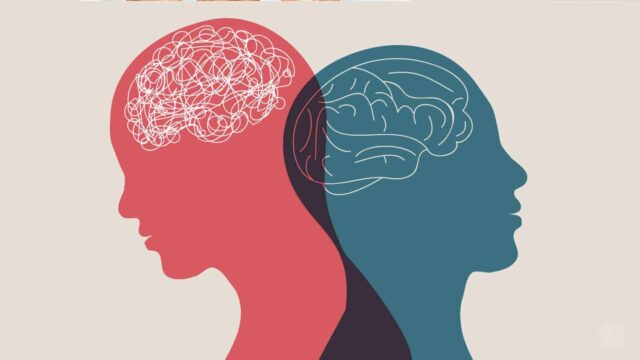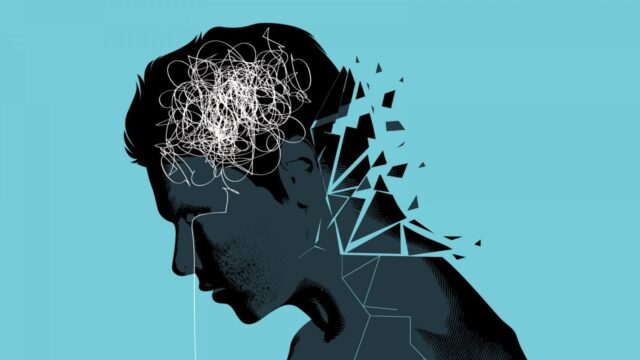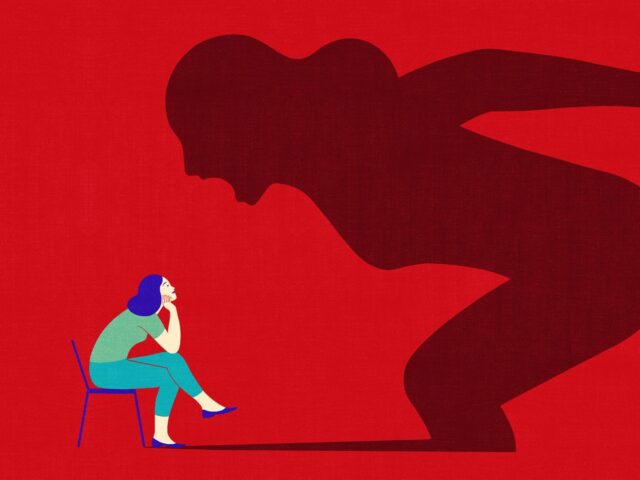
Mental health awareness is becoming more important of an issue with each passing year. The issues people face are being more openly discussed, which is great because it gives others more resources to consult when experiencing similar troubles. While the list of mental issues one can experience is almost endless, some are more prominent than others.
These issues are also easy to overlook because most people assume them to be just passing things or repress the problems due to lacking proper ways to get information or treatment. This is why we’ve compiled a few of the most common mental health issues and their treatments into the below article. Keep in mind that everybody experiences their mental problems differently and finding the right treatment as well as a professional who fits you can take time. Whichever problem you are facing, try out new treatments and never cease putting effort into your mental health.
1. Anxiety

The feeling of anxiety is a natural human response to threat. The effects of anxiety on our organism vary but the effects are generally negative, causing similar symptoms no matter the trigger. The symptoms can be expressed mentally and physically. While it’s normal to feel anxiety there are points at which it becomes a mental health problem.
Some of the telltale signs of an anxiety disorder include the feeling of anxiety that lasts too long and the strength of the feeling is far too disproportionate to the trigger. The embellishment of our worries is another one, although if it’s specifically tied to an event it becomes easier to manage. The difficulty of controlling these signs of anxiety and the appearance of other symptoms that enhance the feeling of anxiety or prolong it are very clear signs of a mental health issue.
The ways you can alleviate anxiety are many. The self-care methods that you should try employing first are ones that firmly rely on yourself. This includes trying to manage your worries, improving your physical health, breathing exercises, and taking breaks from any stressful acts to simmer down your anxiety.
While none of these directly resolves the issue on a greater scale, it gives you a sense of control that can help reduce the detrimental effects of anxiety. However, if you feel unable to face these feelings by yourself there are other ways to approach them. Talking to somebody you trust or expressing your issues to a supportive friend group can be a great way to manage the constant worry. This goes double if the issues are affecting your social life. If you cannot use either of these due to anxiety being too strong, it’s best to go straight to a professional. At that point, you can start lessening the overall effect anxiety has on you.
2. Depression

The most basic feeling depression can be expressed in is feeling down. The basic symptoms of depression slow our life down and make every act take more time due to the innate dispassion it causes. On the other hand, when symptoms of depression become severe they can become extremely dangerous. The most dangerous part of it being suicidal thoughts.
The difference between feeling in a low mood and depression as a mental issue lies in the duration of the feeling. The low mood, no matter its cause, doesn’t last too long. A few weeks should be more than enough to regain a regular predisposition towards tasks and life in general. When this mood persists or occurs repeatedly, you may be dealing with depression.
Depression has many different types ranging from ones that are only seasonally present to the more consistent ones. The self-care suggestions presented before still stand. You should try peer support and talking to trusted members of your friend circle as it can help you manage depression. A really helpful method of self-care includes mindfulness. The technique includes perceiving the events without personal judgment. This helps us avoid the sudden intrusive thoughts and engage in the work we have to do or want to do with depression being less detrimental to it. This is a skill that requires practice so don’t expect to immediately relieve your issues through it, invest the effort needed and it’ll prove useful.
There are other useful self-care methods like aromatherapy, massage, and yoga. While self-care is important, you may not be in the right position to engage in it. In this case, going to a professional is very useful. After a diagnosis has been established counseling is the next best step. The appointments can even be scheduled online, Symmetry Counselling Services is an example of online present counseling specialists.
3. Anger Issues

As we’ve seen thus far, the most common mental issues are ones that stem from basic human emotions. These represent something being wrong with the way and frequency the emotions are expressed. The same goes for anger issues. Anger is a normal emotion to experience when feeling attacked or frustrated in any way.
This can include unfair treatment or invalidation that we face as well as deception. While it can be very useful in notifying us of dangerous situations it can also be completely wrongly expressed. Anger issues happen when the anger becomes your first response and the reactions you have from feeling it become harmful to others and yourself. The ways your anger is expressed also differs.
There’s the outward aggression, this is your standard verbal abuse and physical violence. The destructive behavior of this kind will often hurt others the most. Inward aggression is one where the issues will harm you the most. It includes a lot of self-loathing and can lead to self-harm. There’s also passive aggression which includes a lot of indirect, negative behavior. This includes ignoring people and being mean without directly insulting them.
Treatment and support for anger issues are complicated by the issue itself. The suggestion of getting professional help can trigger the feeling of anger and potential rescheduling of your visit could put you off the whole thing and enhance the current negative feelings.
Keep in mind that such situations are plausible and prepare your psyche accordingly. The long-term treatment includes learning how to cope with your emotions. This includes learning what triggers your anger, developing better communicational skills, and examining the way you think. Even more important is managing outbursts when they do happen, as some triggers are difficult to avoid. The best way to do this is by trying to form some time to think after the trigger occurs. During this time you can employ some self-control methods to simmer down your outburst. This includes breathing slowly, relaxing your body as much as possible, utilizing mindfulness, or try to distract from the source of anger.
The redirection of anger is also useful if you have more time to act. Instead of using the energy in destructive ways express it through fruitful actions. Exercise is the best way to do so and can help you work off the anger. However, if that doesn’t work for you try safely releasing your anger. This can be done by tearing up paper, hitting a pillow, and other ways that won’t harm you or others.








